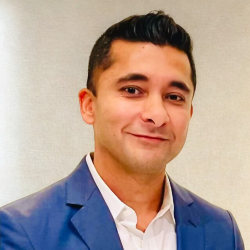Clinical Researcher—November 2020 (Volume 34, Issue 9)
SPECIAL FEATURE
Collected by Gary W. Cramer, Managing Editor
In some professions, it is a point of pride to keep one’s “secret to success” to oneself, as there are corporate ladders to climb, intellectual properties to protect, and outsized reputations to maintain. Not so in the clinical research profession, where sharing advice, lessons learned, and best practices with one’s colleagues—whether through formal mentorships and training, informal networking, standard operating procedures, or other avenues—is typically done with a spirit of generosity and the goal of making clinical trials more efficient and effective for everyone, everywhere within and across organizations and national boundaries.
This being the case, it was no surprise that when the call went out for research veterans to offer up their best career advice to the readers of Clinical Researcher, a welcome variety of volunteers came through with flying colors, as you will see in the commentaries that follow.
Getting it Right from the Start

Like many of us who started in research, I kind of “fell into it.” I started as a back office medical assistant at a practice that did studies and became a coordinator; I had no idea that role even existed! I then became a Certified Clinical Research Coordinator (CCRC) through ACRP in 2003. From there I traveled through other roles to become a Certified Clinical Research Associate (CCRA) and now have the ACRP-PM subspecialty certification in project management as well. Over the last year, I have also had the privilege of volunteering as an ACRP subject matter expert for some review activities.
Twenty years in and I could not be more proud and happy that I found such a rewarding career!
The biggest challenges I hear about involve either how to enter the field or how to move between roles (CRC to CRA), institutions (site to sponsor), or advancement levels (Senior CRA to PM).
Here are my thoughts on these challenges:
- Learn about all the roles that exist within the clinical research realm: Regulatory, Compliance, Quality, Data Management, Research and Development. You may find another area even more rewarding and exciting that speaks to your specific strengths and interests.
- An advanced degree is usually mandatory—even when you already have experience.
- Network, network, network! Did I say network? Not only does it help with professional development, but you will have connections who understand all those acronyms your family members are still confused with—you know, the SOPs, SIVs, CSRs, PMAs, and all the rest.
- Take on “stretch goals” and assignments.
- Do you have a process improvement idea? Discuss it with your leadership and ask if you can work on it and then offer endpoints that can be used to evaluate why your idea is awesome and demonstrate success.
- Ask your manager if he or she has some task they have just not gotten to yet that you can help with. Yes, you are probably already drowning in your own work, but if you can make time, this can give you an opportunity to demonstrate what you can do outside your usual tasks.
- Think about how you are perceived by your leadership, your image, and how to increase the visibility of what you do. Seek out assignments that allow you to be seen by others in your organization (i.e., offer to lead study team meetings, etc).
- Track your accomplishments each year and report them on your performance evaluations. No one is a better advocate for you than YOU!
- You probably have more demonstrated successes than you realize. Did you get noncompliant patients to start making their study visits regularly? Did you have no monitoring visit findings? Did you get sites activated ahead of schedule? Did you earn any certifications or professional recognition from outside your work? Document everything!
- Maintain awareness of current trends and terms through business literature, professional organizations, and continuing education opportunities. Our research landscape is constantly changing, and we have to pivot constantly to meet the demands of leadership.
- For example: We are now seeing a very siloed approach to sponsor CRA activities that are incorporating “agile” or “lean” methodologies. Key performance indicators and key performance metrics are what management look for, and study team members all need to be aware of what contributes to those.
It is wonderful that we live in a time where clinical research programs are now becoming a standard part of certification and degree programs. I still have much to learn or apply. There will be challenges, but loving clinical research is my foundation and I believe that if you love your career and work at it, excellence will come!
Laura Menck, CCRA, ACRP-PM, is Senior Manager of Clinical Operations at Philips.
Opportunity Knocks More Than Once
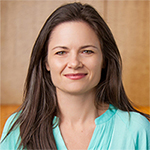
A delightful opportunity leapt out from the university newspaper when I was a graduate school student in the form of the chance to participate in Phase Ia and Ib clinical trials as a “healthy normal.” Soon thereafter, I entered two trials. The first one required a three-day inpatient stay at a dedicated Phase I wing while the second one was an outpatient trial that required pulmonary function tests.
It’s the outpatient trial that changed the trajectory of my career. There was something about the process that drew me immediately. The informed consent, the clear explanations of what I could expect at each step of the process, the incredible customer service of the study coordinator, and the scientific greatness of research design spoke to me 17 years ago like they speak to me now.
I was already pursuing a PhD with the intention of conducting research, and my focus was health psychology. This all felt exceedingly aligned with medical research, so I quit my get-through-grad-school job to become a study coordinator, and thus began my career in clinical research!
I continued with my degree, but found a home in medical research—first in pediatric oncology and then in orthopedic surgery at a large academic medical center (AMC), and later transitioned to a small, independent research site that (at the time) conducted infectious disease and pulmonology trials.
If a person falls in love with research, there is a place for that person anywhere in this amazing industry! My experience at an AMC was vastly different from my experience at an independent site in so many ways—and I adored them both. Anyplace where the investigators are passionate about clinical research is a great place to be, and I’m sure you can imagine how deeply that passion is held in pediatric oncology, where “mission driven” isn’t a slogan, but a way of life.
That noted, I happen to thrive in fast-paced environments that offer significant change, and so a growth company became my career niche. Instability is frightening, but there are enormous growth opportunities at a young or growing company. Those companies are also very likely to be understaffed at times and require people to carry high workloads.
My point is: Consider what you love. There is no right or wrong answer. What I would advise people new to the field is to discuss their strengths and the activities that give them passion with someone else in the field to see what the best fit might be. Consider what speed you like to work at, how you feel about change, whether you enjoy the opportunities that come with being part of an established company or a startup, and what type of mission most speaks to your heart.
I sincerely believe that anyone can succeed in this complicated and fascinating industry if they find an organization aligned with their strengths—and the fact is, we all need you. As an industry, we are millions strong—and that’s not enough.
Christine Senn, PhD, CCRC, CPI, ACRP-CP, FACRP, CSM, is Chief Implementation and Operations Officer with IACT Health and a member of the ACRP Association Board of Trustees.
The Power of Perseverance
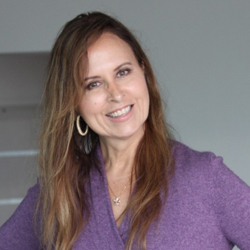
My introduction to the field of clinical research was not unique; many colleagues of my generation shared the same challenging circumstance. We were research-naïve medical professionals who unintentionally “fell” into our positions and experienced a trial by fire assimilation to the field. The only positive aspect of this otherwise unfortunate learning process was that it forced a pivotal decision that, once made, could only be sustained by a specific trait. This trait is what truly defines a successful clinical researcher, above all else. Perseverance.
Perseverance sustained me through the enormous stress of having to learn a new position (as a study coordinator) and a new industry. Perseverance broadened my focus beyond peripheral error to the resulting knowledge that would elevate my abilities. Perseverance, and the pursuit of knowledge, eliminated ego and drove my requests for help in learning my position, forming lasting friendships in the process.
Three simple words define the narrative of perseverance. NEVER GIVE UP! The critical trait required to succeed in this industry is captured in a short piece of advice: If you persevere, you will succeed.
I began to understand the incredible force of this quality after I suddenly found myself working as a new clinical research coordinator (CRC). In the space of a morning, I had walked into a large health center to apply for a nursing position and was convinced by a recruiter to apply for a CRC position. In an eight-hour period I interviewed and was offered the exciting job, understanding neither how it happened nor what it was, exactly.
Over the next seven days I walked into an office stacked with case report forms and studies that lay untouched for weeks. There was so much uncollected data, patients lost to follow up, new patients to consent, and volumes of knowledge to learn. It was a time fraught with anxiety and feelings of helplessness over all I had to learn and do.
I lost count of how many times I nearly gave up and left that position. My ear ached from the barrage of phone calls from my mother ordering me not to quit. My muscles ached from tension and my spirits sagged from insomnia. It sometimes felt that I had failed for even entertaining thoughts of defeat, but then—slowly, surely—perseverance wrought clarity…clarity wrought confidence…and confidence begat stability.
At length, I understood the inclusion exclusion criteria. The queries written by my visiting monitor were not completely nonsensical. The lab manual instructions for packaging samples did not take two hours to decipher. I completed things efficiently and felt immensely gratified over job performance. This banished the once beguiling desire to give up.
I credit my staying power to the monitors who carried me, to the friends/family who encouraged me, and to the principal investigator who believed in me. Our support systems are integral to our survival, as is our ability to persevere despite self-doubt.
The best career advice I could give a new clinical researcher is twofold: No matter how difficult, stay the course to your goals, and seek out mentors to guide your career journey. Their personal experiences will remind you that you are not alone in your struggle, and that with perseverance, they succeeded, and you will too.
The best example of the impact of perseverance on a fledgling career involves a CRC with whom I worked several years ago. She was a site manager for a physician practice with a robust research department. She had worked on the investigational site side for 12 years and was determined to make the move to the clinical research industry side. She had extensive clinical training experience, with the duality of both hospital and investigational trial presentation experience. We met during a monitoring visit, where she first approached me about becoming a clinical trainer. I encouraged her to update her CV with all recent/relevant training experience and to start the application process. She was extremely diligent and passionate in her quest; as a result, she applied to dozens of companies and positions. Unfortunately, after six months she still had not received any substantial interest. However, I really admired her perseverance, her constant refusal to be deterred by the proverbial silent response to her attempts to find a position.
After a long period, she finally received an interview request for a training position. Part of the interview process included the creation of a specific PowerPoint presentation to demonstrate an adept public speaking process and content creation. Her presentation and interview were received well, and she was one of two final candidates considered for the position. Unfortunately, the other candidate was chosen. She allowed herself one minute of remorse/“woe is me” self-pity, and then she dusted herself off and jumped back on the proverbial application horse. She refused to give up on her goal. Three months later, the recruiter for the research organization with whom she had interviewed contacted her with fabulous news. She had presented so well during the interview that they had kept her CV at the top of the stack, with the intent to offer her the next open training position. She started the position two weeks later.
Talent alone will not sustain without the perseverance to ride the storm.
Elizabeth Weeks-Rowe, LVN, CCRA, is a former CRC who now works in site selection and education in the contract research organization industry.
Expect the Unexpected
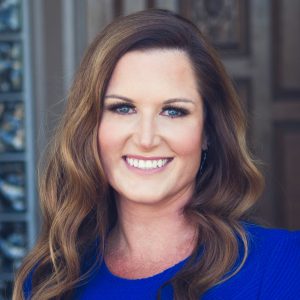
As an oncology nurse, I can honestly say I never thought I would end up working for an employer outside the traditional healthcare system. Here’s how it went down:
After working in a stem cell transplant/oncology ICU and then with an outpatient oncology private practice, a physician colleague asked me if I would be interested in becoming a clinical research nurse for an academic medical center’s early-phase oncology program. I knew private practice infusion was not for me, so I took the leap without really knowing what the role was.
It turns out that this role was what I had envisioned when I went to nursing school; focusing on a smaller group of patients, having the time to do real nursing care, and being on the forefront of oncology treatments. The highs were telling patients who had lost hope that the novel agents were working and being part of the precision medicine movement (and away from trial and error). The lows were when patients came to us too late, as they didn’t know about clinical trials.
I quickly advanced in my career and went down the administrative path. My mentor suggested I get my masters (good suggestion), so I did that in healthcare administration. I worked my way up to being the director of a dedicated early-phase oncology program within a large community hospital system.
I still saw myself as a nurse, as I was now empowering the team to help our patients. The highs were, again, giving patients hope when they didn’t have any and growing the program exponentially. I adored my colleagues. The lows were the challenges of competing for resources within the hospital system. Eventually, I no longer had the fight in me, and I knew the team and our patients deserved better. I quit my job without having another one lined up.
As I was transitioning my role and informing external colleagues of my departure, opportunities for clinical research and healthcare consulting fell into my lap. One of the opportunities was to start the clinical research consulting division at a staffing company. Again, I took the leap as I found synergies with the company’s purpose and the surrounding team.
In between consulting jobs, I joined meetings with the sales team to share with other site directors how I navigated both the hospital and clinical trial ecosystems. My new employer encouraged me to get involved with professional organizations to understand and create solutions on workforce issues at the industry level. Highs: I’m now helping patients on a national level by helping site leaders. Lows: I no longer get to use my epic IV skills.
My advice to those wanting to get into the industry is to network, invest in yourself (get that certification, next degree, and go to conferences), take the time to mentor others, and be open to new opportunities—even ones you never thought of to begin with.
Molly Downhour, MHA, BSN, NEA-BC, OCN, CCRC, is Executive Director Clinical Research with Medix.
Now That You’ve Had Some Time to Think About It…

Assuming that a portion of you reading are or have been employed in the clinical research profession for some time, but are looking for opportunities to make that “next step” in your career, I’ll offer the following insights as to how I was able to advance my own career.
I always like to start with the topic of “Remember When Research was Fun?” Well, I do remember, but I also remember when it wasn’t fun—times when sharing my ideas or being resourced appropriately for solutions was out of the question. By adopting a mixed methods approach—partially one that is familiar to all of us in this field (the “scientific method”), and partially one that is quite unfamiliar in our field (the “entrepreneurial mindset”)—I’ve been able to formulate an adaptable set of practices that not only advance the clinical research effort, but my career as well!
Basically, your goal should be to seek to be a solutions-minded professional. Sure, the clinical research engine chugs forward and we enjoy myriad successes, but don’t you agree that we aren’t moving swiftly enough? There simply are not enough treatments and cures available for the full effective maintenance of health, wellness, nor the common and rare illnesses with which we struggle. We need to do more, and we need to do it more efficiently.
You have great ideas. Put them to work and you will benefit science, society, and yourself—both in terms of your health and in your career pursuits.
To effect true impact, you’ll need to master a few basic business principles. Here are a couple of key tools to incorporate into your day-to-day tasks to differentiate you from your peers and colleagues, and to help you advance your career objectives while also advancing the scientific endeavor:
- Sharpen your inquisitive nature. Incorporate critical thinking skills into every discussion and encounter. Question absolutely everything. Ask why we do what we do, and why we do it the way we do it. Then think through the details of how we can do it differently or better.
- When attending a talk or presentation, don’t simply soak it all in like a sponge. Reach out to the speaker(s). Inquire about their tips and tricks. You’d be surprised at how engaging the experts can be—apparently, they love to share what they know (they took the time to give a talk, after all). Introduce yourself, let them know what takeaways are of value to you, then request some advice on a practical application for a matter you’ve been managing. The simplest outcome will be you’ve made a connection, and we cannot underestimate the value of networking. On the other hand, you may walk away with a keystone to turning the corner on some challenge you’re experiencing in your own workplace. This also lets your bosses know that sending to you to the conference was not in vain.
- Read the book, “How to Lie with Statistics” by Darrell Huff. Though written more than half a century ago, the principles are still applicable to today. Now, am I saying that YOU should use statistics to lie? Absolutely not! Instead, you’ll gain insights as to how data can be presented to say whatever you want it to say. This benefits you in two ways—you’ll be able to critically evaluate data that are being presented to you for consumption, and you’ll obtain the foundational ability of skillful presentation of persuasive arguments that support your drive for solutions.
- Because we all agree that timelines are a grind, I also advise emerging leaders to take a course on project management. You’ll find that the higher up the ladder you go, the more complex the operational and administrative functions will fall under your purview. When you are equipped with the tools to target key outcomes and the ability to identify what’s on track versus off track with ease, you can take on more responsibility and make it look seamless.
- Metrics and money matter. For most in the healthcare and science arena, familiarity with finance is not a strong suit, but this is a muscle you MUST develop. The growth of the entire enterprise of healthcare delivery, including pharmaceutical manufacturing and the future wellbeing of the biotechnology sector, requires that you adopt a mindset of “dollars as drivers.” Monetize it all, because without the funding, we will not have the resources (people, payroll, equipment, infrastructure) to continue to find future treatments and cures.
- Finally, learn the language of systems and technology. Talk technology like it’s your native tongue. Simply adopt a systematic commitment to improving your own ability to transcend the language limitations brought about by the siloing of the clinical research components. Create a common glossary so you can act as a communication hub for the various counterparts across the continuum to meet the challenges of collaboration.
By incorporating one or more of the above pointers into your own approach to problem solving, you will surely be able to push the dial and present yourself as one who is poised for career advancement when the window of opportunity opens.
Good luck to you. You’ve got this!
Jeanie Magdalena Gatewood, MBA, is a Clinical Research Solutions Expert and Independent Contractor/Consultant with Gatewood Life Science Consulting and former Vice President Research Strategy for the Fox Chase Cancer Center.
Look Before You Leap: A Quick Framework for Evaluating Career-Related Decisions
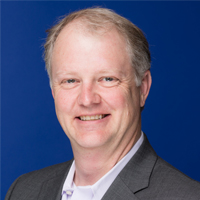
We all, from time to time, get faced with choices involving our careers. Whether you are presented with an unsolicited job opportunity, a problem your entrepreneurial spirit wants to take on, an offer to sit on a board of directors, a change in your current workplace, or even just reevaluating your current job because your life situation has changed, you constantly need to make choices (or reaffirm your current choices) along your career’s lifespan.
Anxiety from evaluating such decisions is usually alleviated by providing some sort of structured evaluation. For me, I focus on the following five variables to bring structure to my career-related decisions. They are not in order of importance, but are equal variables of how my wants and needs change congruent with my evolving life.
Autonomy: This can be evaluated on a micro and macro level. An example of a micro level is how much will you be in charge of your daily schedule while an example on a macro level may be discretion and flexibility in budgeted funds. Arguably nobody wants to be hovered over or hindered by others, but the reality is that nobody is completely free from accountability checks and/or interdependence. Essentially it boils down to under what circumstances do you believe you are ready, willing, and able to self-govern and is that consistent with the processes, key persons, and/or available resources given to you in those circumstances. Perhaps early in a career, role, or task you are more tolerant in having less autonomy (or even prefer it because of the value such collaborations may bring). Perhaps you have become less tolerant in certain situations that you experience as “big company logic,” incessant “mother-may-I”s, or the “constantly looking over your shoulder” feeling. Clearly everyone is not completely free from accountability or interdependence, so when supervision and/or collaboration is required, do those people or processes that fill those roles enhance or hinder your ability to be successful?
Challenge: What will be the short- and long-term challenges you are expecting and are they at the right level for your knowledge, skills, and abilities? Will you be more under-challenged than you desire? Will you be able to handle the stress when over-challenged? When will today’s exciting challenge become a mundane task and will there be opportunities for new stimulation, learning, and reward? When do you prefer (or need) to explore and grow outside your comfort zone versus when do you thrive in getting better and better at a specific task? Preventing burnout and distractions is an ongoing process, and ultimately you need to know thyself and what will perpetually drive you.
Compensation: Clearly compensation is important, but your needs will likely change over time. Perhaps early in your career this is weighed with more importance than other variables because you are starting a family, but you may get to the point where you have adequate resources (i.e., money to live, health insurance through a spouse, etc.) to give up the steady income job to take a shot at a high-risk/high-reward opportunity. Perhaps the opposite is true, and you would prefer a more adventurous lifestyle in your youthful years to explore the world and want to deal with financial security later. You may view a matching 401(k) plan differently in your 20s, 40s, and 60s. It’s also not only about money but the non-monetary compensation. When will you be using all those perks (e.g., the onsite gym, the company wellness program, etc.)?
Legacy: When you look back at your day/month/year/career, what will live on because you did what you did and how important is that to you? Are you content living on in the memories of patients and families as the one who helped them personally, or do you want to accomplish other things? Do you want to use your abilities to make fundamental changes to industry practices? Do you have the burning desire to pay it forward to the next generation of professionals by helping them be successful? When looking at this variable, you have to first reflect and decide on what you want to leave behind in your wake and then ascertain if the opportunity you are evaluating gives you the platform and/or resources you need to achieve it.
Lifestyle: There are tangible and intangible factors to consider with regard to lifestyle. The flexibility between work and non-work life obligations is usually the key focus. This may be acutely influenced if you have others who are dependent on you or when you have core values you are not willing to compromise. What is the expected fluidity between work and non-work obligations when needed (i.e., can you take care of your personal obligation(s) arising during traditional working hours while tolerating the expected workload needed outside those hours)? Is the daily commute tolerable? Will you have to relocate, and if so, when or how often? When will travel requirements be a positive and when will they be a negative? To what extent might you be able to enhance any of your political/religious/family/health/personal values and activities, or will any of these demand unacceptable compromise? You are not your job, but a complex person with complex wants and needs, so how will the opportunity help or hinder you?
For a final note, whatever and however many variables you decide on as your evaluation criteria, it may be helpful to determine some sort of professional creed or mission as a quick test. For me, I developed “to make our data a little better, our research subjects a little better off, and our workday a little easier” as my quick test to see if adding or subtracting something from my career is worth my time and effort. After all, I am trading an hour/day/year/etc. of my life for it, so I should be selective in what I do.
Hopefully, you will thoughtfully create a decision paradigm that can evolve over time and that will help you drive your career decisions to meet your overall life goals. I know I have.
David Vulcano, LCSW, MBA, CIP, RAP, ACRP-CP, FACRP, is Vice President and Responsible Executive for Clinical Research at HCA Healthcare.
Reflections on Research in the Rearview Mirror
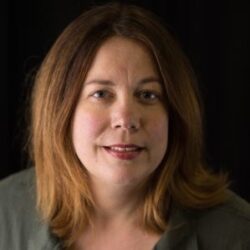
After 30 years in nursing and 12 years of conducting dermatology trials, I only wish that I had found this niche in the field of nursing sooner. The beginning was tough. It was a different language. 1572s, CRAs, SIVs, SAEs…WHAT DOES IT ALL MEAN? I was a seasoned nurse who felt like a new graduate.
The principal investigator (PI) wanted one full-time research nurse. I convinced him to hire two part-time nurses. Although compensation package costs for two people were a concern, the PI quickly realized the benefits far outweighed any additional costs. As it happened, my work partner and I both declined health insurance in lieu of our spouses’ coverages—we were part-time nurses and full-time moms. We had flexibility to accommodate our subjects while simultaneously balancing our family lives.
The biggest benefit to the PI was that we covered for each other; he was never troubled with life’s daily challenges. We brainstormed equitable solutions and one of us was always there to get the job done. We were a two-nurse show for many years. We did the institutional review board submissions, marketing, source documents, scheduling, EKGs, blood draws, and lab processing. You name it, we did it.
When I met a brand new research nurse in another department, I empathized with the bewildered look on her face. That was my expression in the early days. I could only tell her that it would get easier and that I had dry ice she could borrow anytime. It was my job to learn a subject’s entire medical history. I bonded with my subjects and this translated into exceptional protocol visit compliance. Rarely did I have a subject miss a visit. I decided to become a Certified Clinical Research Coordinator (CCRC) through ACRP. Being a nurse and having real experience in research gave me a great foundation for passing the exam. I’m proud to have the CCRC designation after my name.
As for tips to consider, let me start by saying that an outstanding research assistant is a true asset. I used to assume that any college graduate would be a great research assistant, but unfortunately learned the error of my ways though a few hires who did not work out. Take time to find a qualified, detail-oriented person to do research. Create a test. Dictate numbers for the person to transcribe. Have them answer basic math problems. Don’t be blinded by credentials.
Stick to your ethics. If something is not right, speak up. Advocate for your subjects. I was fortunate to work with a wonderful, ethical PI. However, you must always be ready to speak up if the protocol isn’t being followed or if a subject’s rights aren’t being protected. Take the consent process seriously. There are exactly ZERO shortcuts for consent.
Include every research study that you participate in on your CV. Recruiters value this information. Take credit for what you have contributed to science. Research is a truly rewarding career. There is nothing like see a drug commercial on television and knowing that you provided quality data for that drug’s approval. It’s a wonderful feeling to help people.
My department decided to terminate research when the PI retired. It was heartbreaking. There were good studies in the pipeline and the world’s best research assistant was fully trained. She easily transferred to another research department within my organization.
As for me, I’m in limbo. My research responsibilities have been replaced with other obligations. In my personal life, my daughter was diagnosed with type 1 diabetes. I wonder if this is my signal to move into diabetes research. Insulet? Dexcom? Eli Lilly? I love you for giving my daughter a normal life. Call me! I’m on LinkedIn.
Danica Uzelac RN, BSN, CCRC, is Clinical Research and Photopheresis Programs Coordinator with the Rush University Medical Center.
In Parting: A Visit and Lessons from ol’ Research Nurse Joy
(With inspiration from Clement Clark Moore’s A Visit from St. Nicolas.)
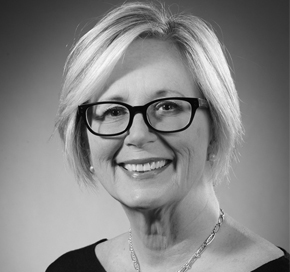
Twas the night before due date and scrambling about
Knowing I had to tell tales to those just starting out;
My career has been long and positions not few,
And because of this here are my lessons to you;
Whether starting anew or changing mid-view,
Stay true to yourself whatever you do;
Become smart through self-learning or classes or view,
The information available on the worldwide web for you;
If research is new don’t give it a thought,
Many have been in your shoes and tripped quite a lot;
Rely on the experts those folks at A-C-R-P,
And think of research as a new recipe;
One of protections of people who care enough to be,
Enrolled in something so new you’ll be there for Side A and Side B;
Protecting those folks will become the job of your core,
While following all the regs from those agencies we adore;
Oh, and just when you think you have all them down pat,
A new study set up comes through, like Virtual, and gets on your back;
Believe in yourself and stand by your goals,
Those important promises you make to yourself as you doze;
Write blogs, publish papers, give lectures galore,
Collaborate with work mates, join committees, share your knowledge some more;
Don’t keep it to yourself, share your newfound smarts with all,
And volunteer! Volunteer! Volunteer cause it’s a ball;
Spend time for yourself in this whirlwind career,
Knowing some days, it will feel like you’ve been kicked in the rear;
Get certification as soon as you are able to,
Cause obtaining your certs is the professional thing to do;
And while all this knowledge is stirring you around,
Decide to get serious and write something down;
Share experiences you have because none are the same,
Because sharing helps bring you closer to your A-game;
Breathe deeply when stress and worry are making you blue,
And cherish those mentors and leaders and crew;
Because often they show up all shiny and bright,
Taking you out of what you thought to be only the night;
Then after that breath, take on a new challenge or two,
God knows I’ve been challenged a bad time or two;
Keep your eye on your prize, whatever it may be,
And smile and give it back to those lower than thee;
Be kind to those also who are busier than you,
While offering a hand or to cover a visit or two;
Cause working together can be few and far between,
Set an example for others no matter how keen;
I’ll not say it’s easy and you might lose your way,
By mistakes or by staying with a job that has swayed;
Stay true to yourself for the times now and then,
When your tears or your heartache seem never to end;
This career path you’ve chosen can cause bumps, bites, and falls,
But in the end, it’s about cures from those diseases and all;
So as pandemic and solitude keep all far away,
Breathe deeply again and continue your day;
To fight the good fight for those who can’t or are sick,
Helping find the right new thing that could do just the trick;
Knowing research is the career path you’ve chosen and then,
One that takes you to a retirement with fulfillment and Zen;
To a time when you’re grateful for those bumps, bites, and falls;
To have kept your humor, autonomy, beneficence, and justice for all!
Joy Jurnack, RN, CCRC, CIP, FACRP, is Research Program Director, Wilmington Health Research, Clinical Operations, Innovo Research and a member of the Academy of Clinical Research Professionals.
**ACRP**

